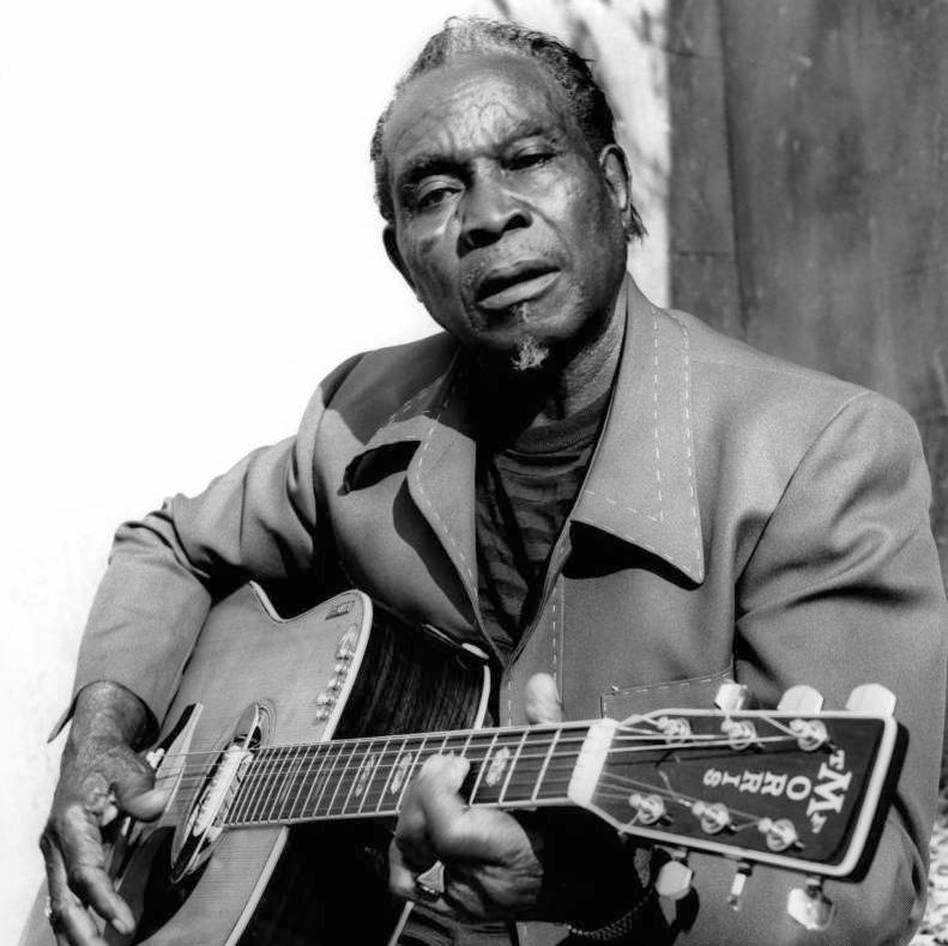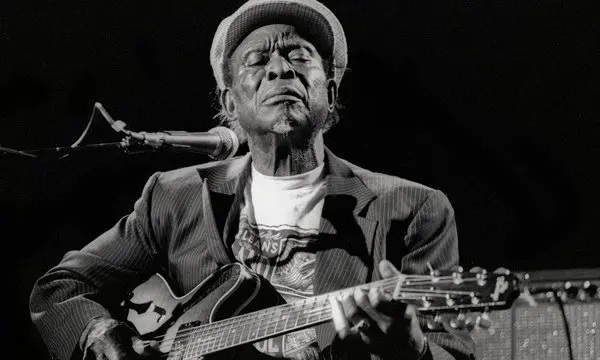Honeyboy Edwards – A Complete Biography
Introduction
David “Honeyboy” Edwards (1915–2011) was one of the last living links to the first generation of Mississippi Delta blues. A guitarist, singer, and storyteller, he bridged the acoustic Delta tradition of the 1930s and 1940s with the postwar Chicago scene, touring and recording into his nineties and earning top national honors, including a National Heritage Fellowship in 2002 and a GRAMMY Lifetime Achievement Award in 2010.

Childhood
Edwards was born June 28, 1915, in Shaw, Mississippi, the son of sharecroppers. He first learned guitar from his father, Henry Edwards, who also played violin for local dances. Growing up in the Delta, he did farm labor from a young age—a harsh environment that later colored his music and stories.
Youth
As a teenager, Edwards hit the road with bluesman Big Joe Williams, beginning a rambling life of hoboing, juke joints, and street performances across the South. Along the way he absorbed lessons from and performed with leading Delta figures, including Robert Johnson, Tommy McClennan, Charley Patton, and Tommy Johnson. He later said he was present around the time of Johnson’s fatal poisoning in 1938—an episode he recounted in interviews—and he worked the Greenwood area in those years. In July 1942, folklorist Alan Lomax recorded Edwards in Clarksdale for the Library of Congress, capturing a crucial early snapshot of his repertoire and style.
Adulthood
Edwards’ first commercial sides arrived in 1951 under the name “Mr. Honey,” followed by a 1953 Chess session that yielded the minor classic “Drop Down Mama.” By the mid-1950s he had settled in Chicago, where he worked day jobs and played nights, part of the move that would electrify the blues. From the 1960s on, he toured widely, recorded prolifically—including Mississippi Delta Bluesman for Folkways/Smithsonian—and collaborated with artists such as Sonny Boy Williamson and Sunnyland Slim. His memoir, The World Don’t Owe Me Nothing (1997), became a touchstone of Delta-blues life writing. Late-career recognition included a National Heritage Fellowship in 2002, a GRAMMY for Last of the Great Mississippi Delta Bluesmen: Live in Dallas in 2008, and a GRAMMY Lifetime Achievement Award in 2010.
Major Compositions (Notable Songs & Recordings)
- “Wind Howlin’ Blues.” An original piece documented by Alan Lomax in Clarksdale (1942); one of Edwards’ signature early titles.
- “The Army Blues.” Another 1942 field recording that showcases his topical songwriting and Delta delivery.
- “Just a Spoonful.” Edwards’ 1942 rendition of a venerable blues theme is preserved in the Library of Congress archive.
- “Drop Down Mama.” Recorded for Chess in 1953 and long cited as a standout single from his early Chicago period.
- Early singles (“Build a Cave” / “Who May Be Your Regular Be,” 1951). His first commercial releases, issued under the moniker “Mr. Honey.”
In the blues tradition, repertoire often mixes original songs with personal versions of shared themes; these selections reflect Edwards’ most documented and influential recordings rather than a strict list of sole-authored compositions.
Death
After announcing his retirement in July 2011 due to ill health, Edwards died of congestive heart failure at his Chicago home on August 29, 2011, at age 96. Obituaries emphasized his role as a “last link” to the earliest Delta generation and his unbroken memory of the era.
Conclusion
Honeyboy Edwards’ life traces the arc of the blues itself: from plantation dances and boxcar rides to city clubs and concert halls around the world. His field recordings, classic singles, road-hardened storytelling, and late-life honors preserved a living memory of the Delta while connecting it to Chicago’s electric sound—and, by extension, to the DNA of rock and American roots music. His music and testimony keep the early blues vividly present for future generations.

Comments are closed